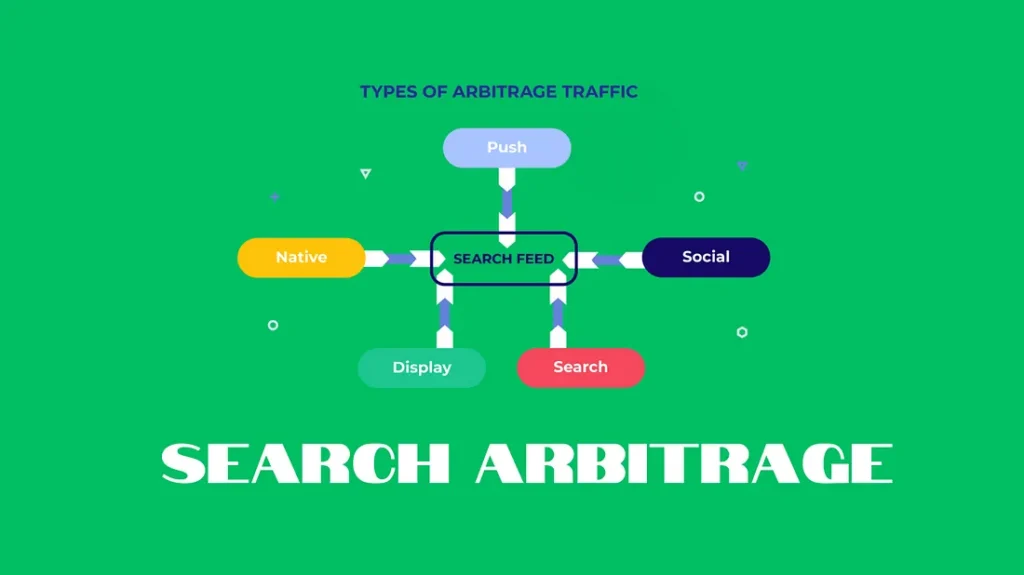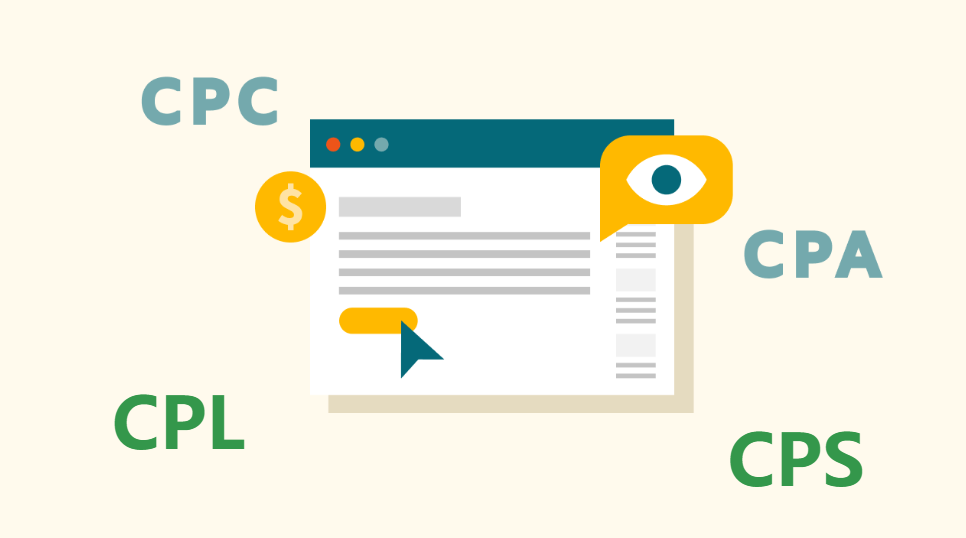In the dynamic world of digital marketing, understanding the intricacies of cost-per-click (CPC), cost-per-lead (CPL), cost-per-sale (CPS), and cost-per-action (CPA) is crucial for maximizing the effectiveness of your advertising campaigns. These metrics form the backbone of search arbitrage, a practice where advertisers capitalize on the difference in advertising costs across different platforms to generate profits.
Table of Contents
Cost-Per-Click (CPC): Unlocking the Power of Clicks
CPC is a popular payment model where advertisers pay a fee each time their ad is clicked. In search arbitrage, CPC serves as a fundamental method for generating revenue through user clicks. Marketers bid on keywords relevant to their offerings, aiming to attract users to their websites. By optimizing ad copy, landing pages, and keyword targeting, advertisers can increase click-through rates (CTRs) and drive more traffic to their sites. CPC is particularly effective for driving immediate traffic and brand visibility, making it a cornerstone of search arbitrage strategies.
This content is sourced from Youtube: View more.
Cost-Per-Lead (CPL): Harnessing the Value of Leads
CPL focuses on acquiring leads by incentivizing users to submit their personal information, such as email addresses or contact details. In search arbitrage, CPL campaigns aim to capture user data, transforming clicks into valuable leads. Advertisers create compelling offers or lead magnets to entice users to take action, such as signing up for newsletters or downloading ebooks. By optimizing landing pages and forms for conversions, marketers can maximize lead generation while minimizing acquisition costs. CPL is valuable for building customer databases and nurturing relationships through targeted marketing efforts.
Cost-Per-Sale (CPS): Maximizing Profits from Conversions
CPS involves earning a commission for each sale generated through advertising efforts. In search arbitrage, CPS campaigns focus on driving conversions and revenue through product sales. Advertisers promote products or services through targeted ads and optimized landing pages, encouraging users to make purchases. By tracking conversions and optimizing the sales funnel, marketers can increase revenue and return on investment (ROI). CPS is advantageous for e-commerce businesses and affiliate marketers looking to monetize website traffic and drive sales.
Cost-Per-Action (CPA): Driving Specific User Actions
CPA encompasses a broader range of actions beyond clicks, leads, or sales, including sign-ups, downloads, or form submissions. In search arbitrage, CPA campaigns aim to drive specific actions that align with business objectives. Advertisers optimize campaigns to encourage desired actions, such as app installations or free trial sign-ups. By analyzing user behavior and refining targeting parameters, marketers can optimize CPA campaigns for maximum engagement and conversions. CPA offers flexibility and scalability, allowing advertisers to tailor campaigns to diverse objectives and audiences.

The Role of Search Arbitrage in Maximizing ROI
Search arbitrage leverages the differences in advertising costs across various platforms to generate profits. By strategically purchasing advertising space at a lower cost and reselling it at a higher price, advertisers can capitalize on the arbitrage opportunity and maximize their return on investment (ROI).
Strategies for Success in Search Arbitrage
To succeed in search arbitrage, advertisers must employ a variety of strategies to optimize their campaigns and maximize their profits. Some key strategies include:
- Keyword Optimization: Identifying and targeting high-converting keywords is essential for maximizing ROI in search arbitrage. By focusing on relevant keywords with low competition and high search volume, advertisers can increase their chances of success.
- Ad Copy Testing: Testing different ad copies and messaging is crucial for optimizing click-through rates (CTR) and conversion rates in search arbitrage campaigns. Advertisers should continuously experiment with different ad creatives to identify which ones resonate most with their target audience.
- Landing Page Optimization: Optimizing landing pages for conversions is essential for driving sales and maximizing ROI in search arbitrage. Advertisers should ensure that landing pages are well-designed, user-friendly, and optimized for the desired action, whether it’s making a purchase or submitting contact information.
- Performance Tracking and Analysis: Monitoring campaign performance and analyzing key metrics such as CPC, CPL, CPS, and CPA is vital for identifying areas of improvement and optimizing ROI in search arbitrage. Advertisers should regularly track and analyze performance data to make informed decisions and adjust their strategies accordingly.

Conclusion
In conclusion, search arbitrage harnesses CPC, CPL, CPS, and CPA models to maximize profits and achieve marketing goals. By understanding the nuances of each payment model and optimizing campaigns accordingly, advertisers can unlock the full potential of search arbitrage strategies. Whether aiming to drive traffic, generate leads, increase sales, or encourage specific actions, the key lies in strategic planning, continuous optimization, and data-driven decision-making.
FAQs:
What is the main difference between CPC, CPL, CPS, and CPA in search arbitrage?
In search arbitrage, CPC (Cost Per Click) involves earning revenue each time a user clicks on an advertisement, CPL (Cost Per Lead) entails earning revenue for generating potential customer leads, CPS (Cost Per Sale) involves earning revenue for driving sales, and CPA (Cost Per Action) requires earning revenue for specific user actions like signing up or making a purchase. Each model varies in terms of the desired user interaction and the corresponding compensation method.
How do I track the performance of my search arbitrage campaigns, and what metrics should I focus on?
Tracking the performance of your search arbitrage campaigns is crucial for optimizing your strategies and maximizing profitability. Utilize analytics tools provided by advertising platforms to monitor metrics such as click-through rates (CTR), conversion rates, cost per acquisition (CPA), and return on investment (ROI). These metrics offer insights into the effectiveness of your campaigns, allowing you to identify areas for improvement and make data-driven decisions to enhance your overall performance.
Are there any ethical considerations I should be aware of when engaging in search arbitrage?
Ethical considerations are paramount in any business endeavor, including search arbitrage. Avoid engaging in deceptive practices, such as click fraud or misleading advertising, as these can damage your reputation and lead to account suspensions or legal repercussions. Prioritize providing value to users through relevant, high-quality content and transparent advertising practices. Additionally, respect the privacy of user data and comply with applicable regulations, such as GDPR or CCPA, to maintain trust and credibility with your audience.
Becoming a publisher with Bluefriday is straightforward. Begin displaying ads and earning revenue immediately.






